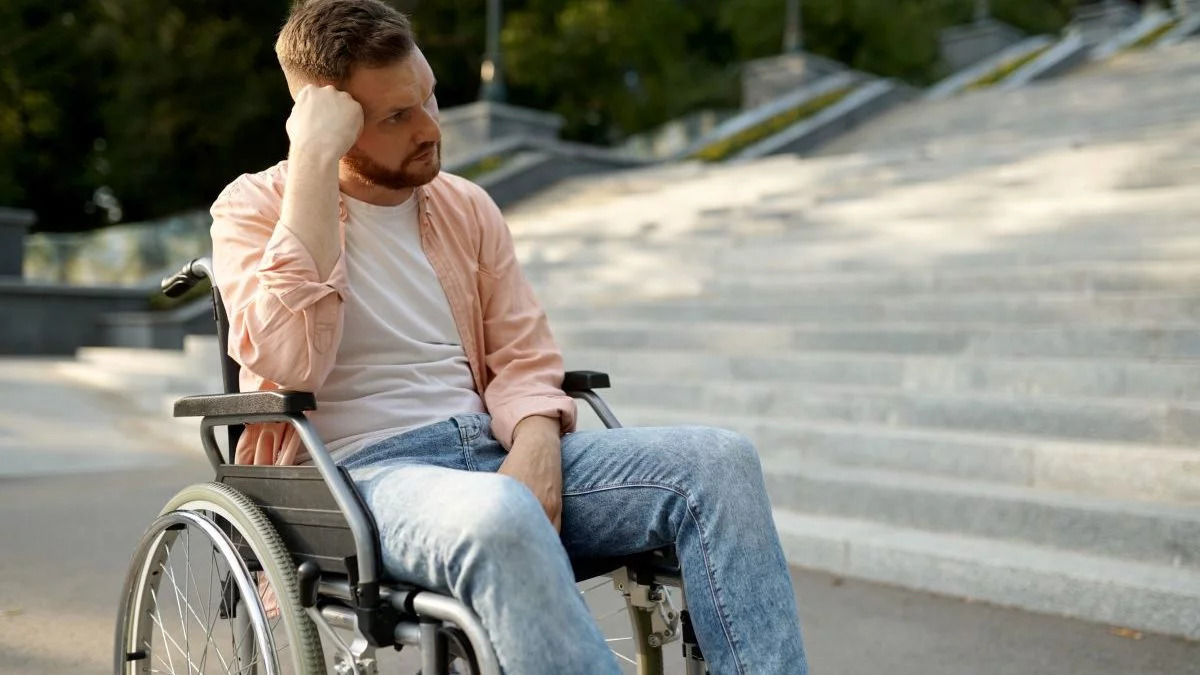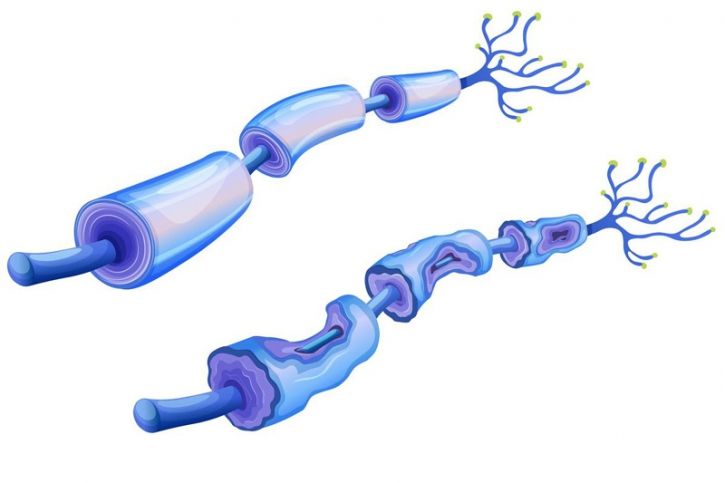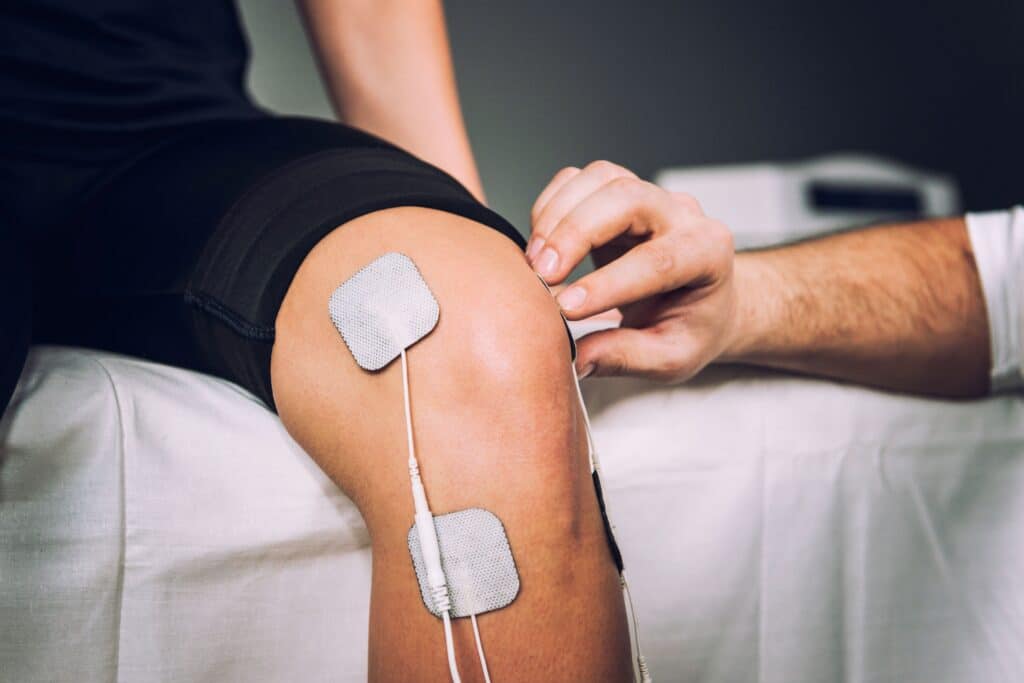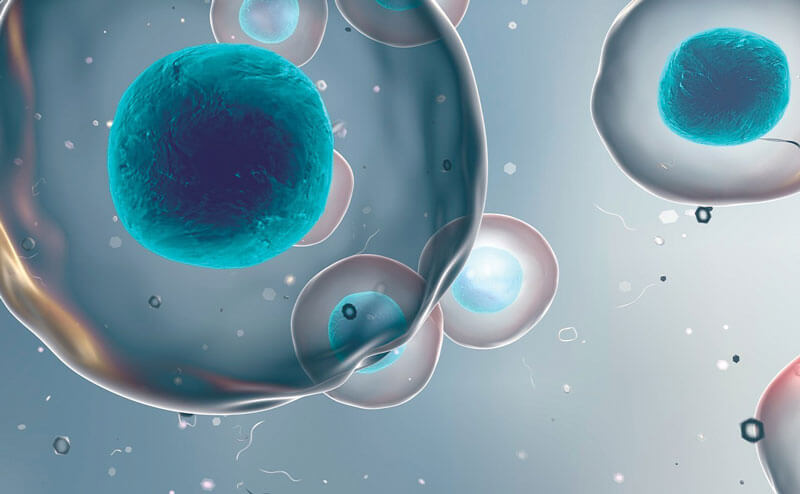Calls for Ukraine
Calls for Europe
Calls for USA

CIDP is a rare disease that affects people of all ages. It affects men twice as often as women, and the average age of onset is 50 years. The prevalence of pathology is approximately 5-7 cases per 100,000 people.
CIDP significantly reduces the patients’ quality of life and can lead to disability. Modern treatments help slow down the course of polyneuropathy, but do not repair damaged nerves. In addition, standard therapy is associated with the risk of developing numerous side effects. Therefore, an active search is currently underway for new, more effective and safe methods of treatment, and cell therapy is one of the most promising directions in this field.
CIDP is a rare neurological disease characterized by inflammation of nerve roots and peripheral nerve fibers. Normally, nerve fibers are covered with a protective fatty sheath – myelin, which allows them to quickly transmit signals (40-60 meters per second).
Sometimes, for unknown reasons, the immune system mistakenly starts attacking healthy cells in the body. In CIDP, it attacks the myelin sheath. Damage to myelin slows or blocks the transmission of nerve impulses, causing the patient to experience symptoms such as weakness, paralysis, or impaired motor function.

If CIDP is not diagnosed and treated in time, the disease can lead to dangerous health consequences:
Pain and impaired motor functions significantly reduce the quality of life of patients, limiting their activity, as well as the ability to work and participate in social life. Therefore, it is important that treatment be started as early as possible.
The MedTour company cooperates with the best neurologists from around the world. Call or write to us, and the coordinating physician will select a CIDP treatment specialist for you, taking into account your capabilities and personal wishes.
With CIDP, doctors recommend avoiding:
In addition, doctors advise not to ignore symptoms of the disease, such as pain, numbness, loss of sensation or impaired motor functions, as they may indicate the progression of the disease.

The exact causes of CIDP are unknown, although there is strong evidence that it is an autoimmune disease. It occurs due to a malfunction of the immune system, in which it begins to attack healthy cells in the body. Why exactly this failure occurs is still not exactly clear.
Recently, scientists have identified antibodies directed against peripheral nerve components that cause rare variants of CIDP. These data are encouraging that antibodies causing other forms of demyelinating polyneuropathy will soon be identified.

Symptoms of the disease vary depending on the location of the nerves and the degree of their damage. The most common manifestations of the disease are:
The symptoms listed above are a signal to see a doctor. They do not necessarily indicate the development of CIDP, but the patient requires a thorough diagnostic examination. Call or write to the medical coordinator of MedTour, who will select an affordable clinic and a neurologist for you to diagnose polyneuropathy.
When CIDP is suspected, doctors usually order the following laboratory tests:
Sometimes doctors additionally recommend testing for metabolic markers, inflammatory markers, and toxins.

A comprehensive examination for the diagnosis of CIDP, as a rule, includes the following medical tests:
Because CIDP is rare, it should be diagnosed by an experienced physician. Call by phone or fill out the feedback form. The medical coordinator of MedTour will select for you a neurologist specializing in the treatment of polyneuropathy free of charge.

The main goals of CIDP therapy are to stop pathological immune processes, reduce inflammation, and prevent further damage to the myelin sheath and nerve damage. Most often, doctors prescribe corticosteroids, intravenous immunoglobulins, and plasmapheresis to achieve these goals.
Treatment is considered successful if the patient after a course of therapy shows a marked improvement in motor skills, sensitivity and ability to perform daily activities.

Today, doctors use various methods of immunosuppressive (suppressing the immune system) therapy to treat CIDP. However, such drugs do not always achieve long-term, drug-free and asymptomatic remission. Some patients after standard therapy for CIDP still experience relapses, sometimes even leading to disability and death.
Therefore, scientists are actively looking for new, safer and more effective therapeutic approaches. One of them is hematopoietic stem cell transplantation (HSCT). These are progenitor cells that give rise to various types of blood cells. The main advantage of these stem cells is that they can be obtained from the patient’s own bone marrow or peripheral blood without resorting to the use of donor material.
Hematopoietic stem cells have the ability to regulate the immune system. Currently, HSC transplantation is actively used for intractable patients with chronic demyelinating inflammatory polyneuropathy.
How do stem cells help with CIDP?
According to research, hematopoietic stem cell therapy helps:
Specialists assessed the condition of patients for 5 years. Every year after HSCT, the performance improved. The data above are from the fifth year after stem cell transplantation.
In general, cell therapy helps to relieve symptoms, improve neurologic assessment results, and achieve a long period of remission in most patients.
What do the studies say?

From 2002 to 2018, about 70 cases of chronic inflammatory demyelinating polyneuropathy were reported worldwide, which were completely cured with hematopoietic stem cell transplantation.
According to general estimates, the frequency of relapses in patients decreased to varying degrees. The results of the electrophysiological study have improved significantly. Symptoms improved, disease progress was effectively controlled, and some patients were able to completely stop taking immunosuppressants after HSCT.
One of MedTour’s goals is to make innovative treatments more accessible to patients. Currently, we are collaborating with a number of clinics around the world that offer the possibility of CIDP therapy with hematopoietic stem cells. To get a free consultation with a MedTour coordinating doctor, call or fill out the feedback form.
There are no methods that can prevent the failure of the immune system that leads to the development of CIDP. However, patients should be aware that early diagnosis and qualified treatment help to avoid further progression of the disease and disability. Therefore, knowledge of the symptoms of demyelinating polyneuropathy and access to modern therapeutic techniques are the key to the successful treatment of this disease.

Some vitamins play an important role in maintaining the health of the nervous system. However, it is important to consider that any vitamin complexes should be prescribed by a doctor after a comprehensive diagnostic assessment of the patient’s condition. For the prevention of neurological disorders, the following vitamins are used:
Do not forget that self-medication and excessive use of vitamins can be harmful to health. Be sure to check with your doctor before taking vitamin supplements.
Treatment for CIDP depends on the type and severity of the disease. Typically, doctors prescribe corticosteroids, immunomodulators, intravenous immunoglobulin injections, pain relievers, nerve conduction drugs, and other drugs to reduce symptoms and improve the quality of life of patients. It is important to consider that only an experienced doctor can plan an effective treatment protocol.
The MedTour company cooperates with the world’s leading clinics that specialize in the treatment of neurological diseases. Currently, we can offer patients both standard therapy and innovative stem cell therapies, which have been able to prove their effectiveness in clinical trials. Get a free consultation from a MedTour coordinating doctor, who will tell you more about the modern possibilities of treating demyelinating polyneuropathy and help organize treatment.
The MedTour platform contains information about the best doctors specializing in the treatment of neurological disorders. CIDP stem cell therapy is handled by Ivan Badyin, who has over 17 years of experience in the application of regenerative medical technologies. Dr. Badyin is currently consulting patients at the Tara 70 Polyclinic in Serbia. This is a modern medical center equipped with everything necessary to provide high quality medical services.
Please rate the work of MedTour
